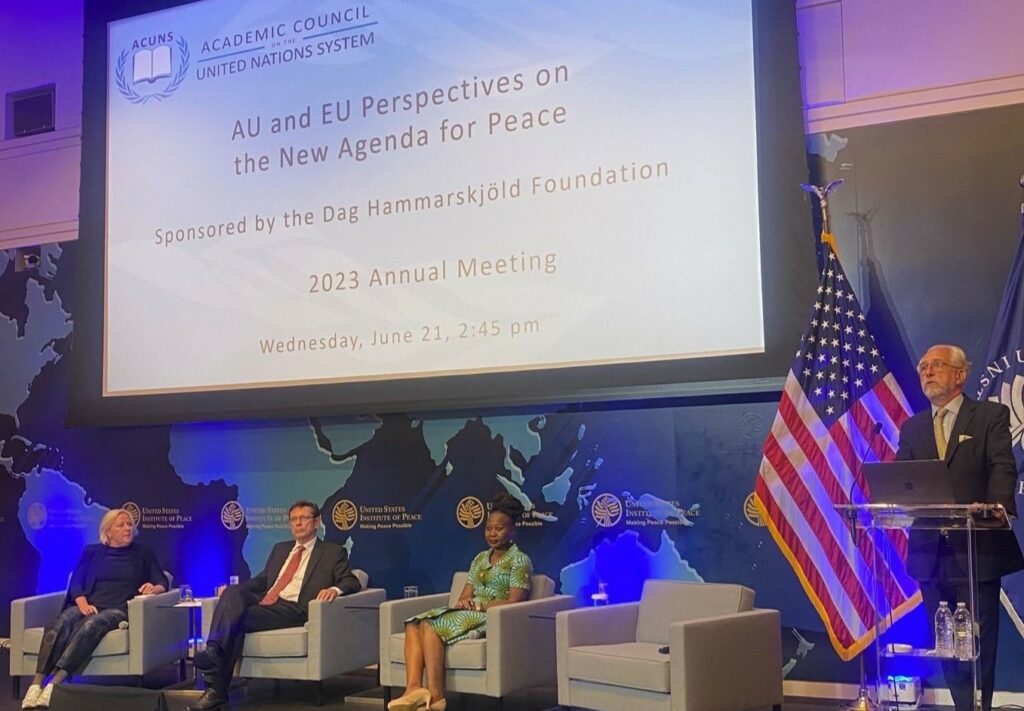At ACUNS with a focus on regional prevention
Challenges Forum participated at the 36th Annual Meeting of the Academic Council on the United Nations System (ACUNS*) held in Washington DC 20-22 June, under the theme “Making, Keeping, and Sustaining Peace”.

CFIS Director Pernilla Rydén was one of the panelists in the highly topical discussion on New Agenda for Peace: African Union (AU) and European Union (EU) Perspectives, sponsored by the Dag Hammarskjold Foundation. She highlighted that the UN Peace operations have done regional prevention work since the outset of its first field mission UNTSO and that norms now have to be put into action, while the division between UN and regional organisations should be based on comparative advantages.
She also suggested some concrete ways forward:
– Issuing more regional mandates to handle cross-border conflicts.
– Handling the adhoc regional security arrangements.
– Introduce tailormade observation missions, in a new format.
– Introduce ad hoc expert missions/teams.
– Introducing peace process support teams, for enhanced standby mediation capacity.
ACUNS programme
400 scholars, diplomats and other practitioners of international relations from around the world took part in the three-day event, which included a very solid programme. Many of the panel discussions highlighted the Future of Peacekeeping and the New Agenda for Peace, and a common takeaway was that effective partnerships are key. Peace operations need to be given realistic mandates, and be based in data driven analysis and planning. And peace operations serves as a viable preventive tool if utilised wisely.
The panel discussion on New Agenda for Peace: African Union (AU) and European Union (EU) Perspectives can be viewed again on YouTube (see below, the session starts at the time 4:08:45 into the streaming)
| *The Academic Council on the United Nations System (ACUNS) is an independent nonprofit association of scholars, practitioners, institutions, and individuals active in the work and study of the UN. ACUNS stimulates and supports dialogue and research about issues of global concern and international cooperation. |

